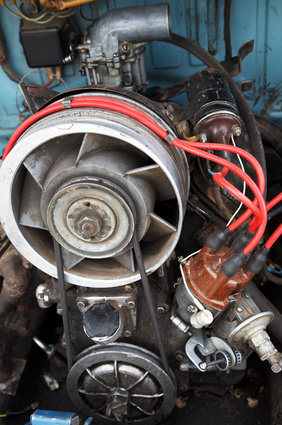A car thermostat is installed on a car engine and regulates the engine temperature by opening to allow coolant from the radiator to flow through the engine, cooling it down, then closing again to allow the engine to warm up to operating temperature. This cycle repeats itself as you drive, keeping your engine at its optimal temperature for driving. Most automobile mechanics will tell you it is not a good idea to drive your car without a thermostat installed. If your thermostat becomes stuck in the closed position, though, this will cause your engine to overheat and make driving your car impossible. If you are in this sort of a bind and simply have to drive without a thermostat, it can be done.

The main purpose of an automobile's thermostat is to regulate the operating temperature of the engine. The warmth of the engine is what makes heat inside your car when you turn on the heater. So, if you drive without a thermostat, your engine will never reach its optimal operating temperature and your heater may blow cold air. If you live in a warm climate, this should not be a problem.

If lack of heat inside your car is a problem for you, one solution is to place a large piece of cardboard in front of the radiator, between the radiator and your car's grill. This will keep cold air from blowing across your radiator and further cooling your car. This may help you to get some heat from your car's heater.

When driving without a thermostat, you may notice a decrease in gas mileage or performance. This is because driving without a thermostat "tricks" your engine into thinking it is cold outside, causing it to adjust the gas mixing valve and push more fuel to the engine. Consequently, your engine will run too "rich" and performance will be affected.

You may think your engine would overheat without a thermostat in place, but actually, the opposite is true. A car without a thermostat would never even warm to operating temperature, much less overheat. The lack of a thermostat would create a constant flow of coolant through the engine, thus a constant cooling effect on the engine. The opposite would be true if the thermostat were in place and were to become stuck in the closed position, which would never allow coolant to enter the engine, causing it to overheat. In this case though, the thermostat is not present, so this would not be a problem.

You should have your thermostat replaced by a competent mechanic as soon as possible after you reach your destination. This will allow your engine to reach optimal operating temperature, improving gas mileage and performance.
